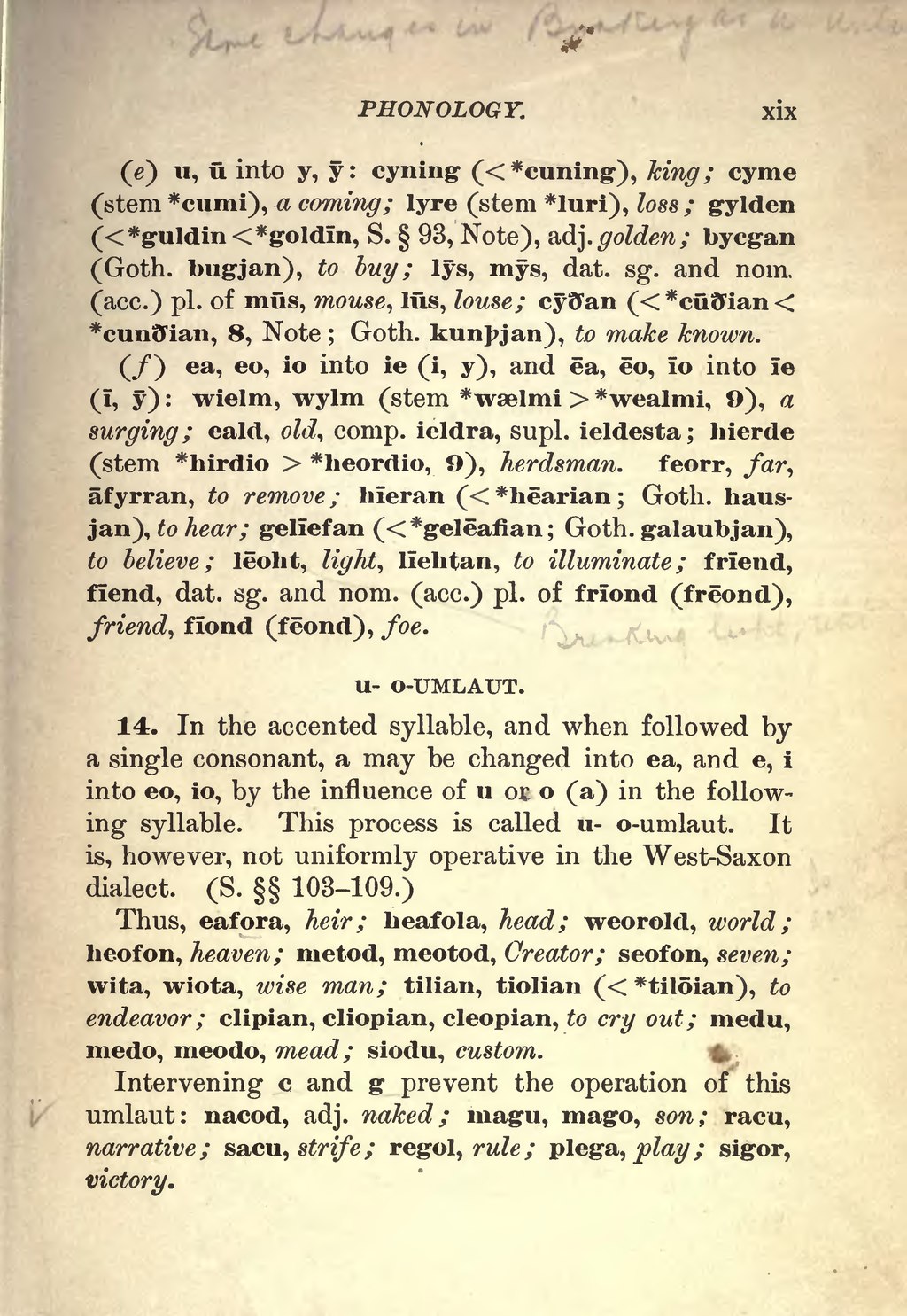(e) u, ū into y, ȳ: cyning (< *cuning), king; cyme (stem *cumi), a coming; lyre (stem *luri), loss; gylden (< *guldin < *goldīn, S. § 93, Note), adj. golden; bycgan (Goth, bugjan), to buy; lȳs, mȳs, dat. sg. and nom. (acc.) pl. of mūs, mouse, lūs, louse; cȳðan (< *cūðrian < *cunðian, 8, Note; Goth, kunþjan), to make known.
(f) ea, eo, io into ie (i, y), and ēa, ēo, īo into īe (ī, ȳ): wielm, wylm (stem *wælmi > *wealmi, 9), a surging; eald, old, comp. ieldra, supl. ieldesta; hierde (stem *hirdio > *heordio, 9), herdsman. feorr, far, āfyrran, to remove; hīeran (< *hēarian; Goth, hausjan), to hear; gelīefan (< *gelēafian; Goth, galaubjan), to believe; lēoht, light, līehtan, to illuminate; frīend, fiend, dat. sg. and nom. (acc.) pl. of frīond (frēond), friend, fīond (fēond), foe.
u- o-umlaut.
14. In the accented syllable, and when followed by a single consonant, a may be changed into ea, and e, i into eo, io, by the influence of u or o (a) in the following syllable. This process is called u- o-umlaut. It is, however, not uniformly operative in the West-Saxon dialect. (S. §§ 103–109.)
Thus, eafora, heir; heafola, head; weorold, world; heofon, heaven; metod, meotod, Creator; seofon, seven; wita, wiota, wise man; tilian, tiolian (< *tilōian), to endeavor; clipian, cliopian, cleopian, to cry out; medu, medo, meodo, mead; siodu, custom.
Intervening c and g prevent the operation of this umlaut: nacod, adj. naked; magu, mago, son; racu, narrative; sacu, strife; regol, rule; plega, play; sigor, victory.
